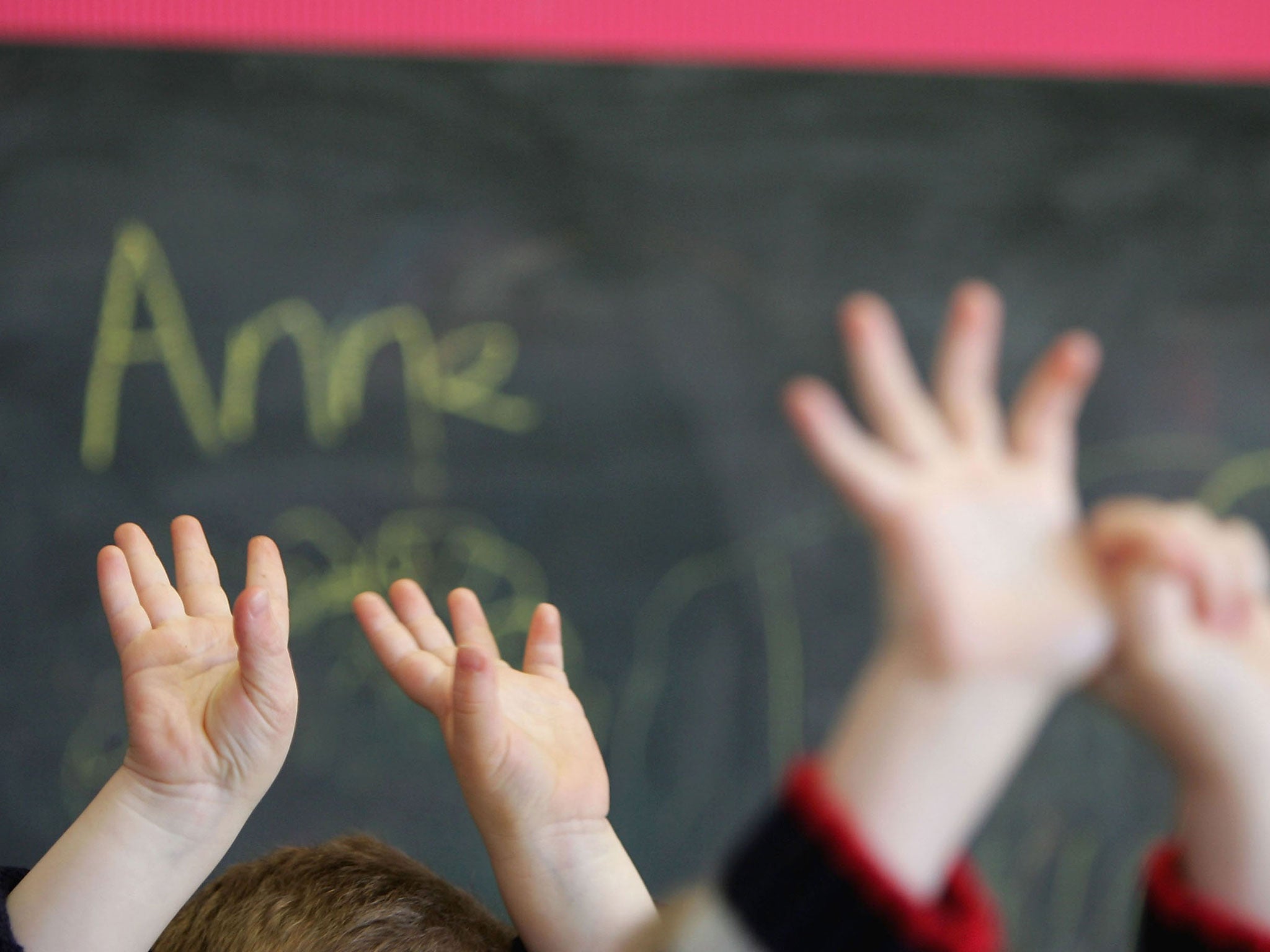40 per cent of children are at risk of developing literacy problems because they don't bond with their parents

Your support helps us to tell the story
From reproductive rights to climate change to Big Tech, The Independent is on the ground when the story is developing. Whether it's investigating the financials of Elon Musk's pro-Trump PAC or producing our latest documentary, 'The A Word', which shines a light on the American women fighting for reproductive rights, we know how important it is to parse out the facts from the messaging.
At such a critical moment in US history, we need reporters on the ground. Your donation allows us to keep sending journalists to speak to both sides of the story.
The Independent is trusted by Americans across the entire political spectrum. And unlike many other quality news outlets, we choose not to lock Americans out of our reporting and analysis with paywalls. We believe quality journalism should be available to everyone, paid for by those who can afford it.
Your support makes all the difference.Four out of 10 children are at risk of behaving badly and having literacy problems before they even start school because of poor parenting, says a study out today.
Research by the Sutton Trust education charity, dedicated to campaign for equal opportunities in education for all pupils regardless of background, shows 40 per cent of children fail to bond with their parents.
The report concludes: “With the right early parenting, children can develop a secure attachment to their mothers and fathers - a base from which they can thrive.”
However, those that fail to bond with their parents are likely to suffer low educational attainment, develop a range of risk behaviours leading to criminal activity in adolescence and also obesity.
The report, by a trio of academics - Sophie Moullin, from Princeton University, Jane Waldfogel, from Columbia and the London School of Economics, and Dr Liz Washbrook, from Bristol University - argue that younger parents are more likely to fail to bond with their children.
“Young mothers and fathers are less likely to have the emotional or economic security to provide the conditions for sensitive and responsive parenting,” it adds. “Many young mothers experience higher degrees of stress related to parenting and tend to be less responsive and more detached with their infants than older mothers.”
The report recommends that children’s centres should focus more on developing parenting skills.
Conor Ryan, director of research at the Sutton Trust, said: “Better bonding between parents and babies could lead to more social mobility as there is such a clear link to education, behaviour and future employment.
“The educational divide emerges early in life with a 19 month readiness gap (for schooling) between the most and least advantaged children by the age of three.”
Join our commenting forum
Join thought-provoking conversations, follow other Independent readers and see their replies
Comments